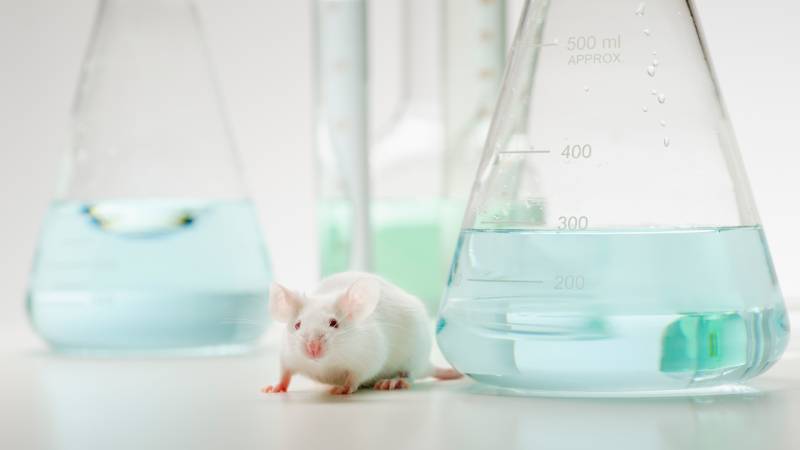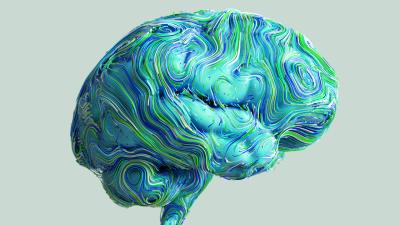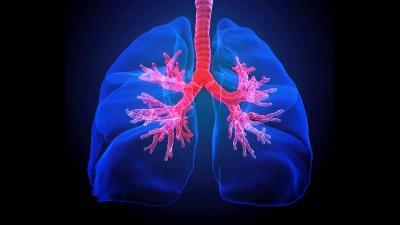Physicians Committee Facilitates International Use of Non-Animal Test Methods

The Physicians Committee for Responsible Medicine works to replace animal testing on a global scale through our work with the Organisation for Economic Co-operation and Development (OECD). The OECD effectively “harmonizes” international regulations on chemical testing by a process called Mutual Acceptance of Data. This means that OECD member countries are bound by legal contract to accept the methods endorsed by the OECD.
On its surface, global harmonization of any test method has the potential to save animal lives by reducing duplicative animal testing to satisfy different regulatory requirements across countries. However, the Physicians Committee staff aims higher than animal reduction. Our scientists and policy experts are working through the OECD to ultimately replace the use of animals. We do this by advocating for and facilitating non-animal methods through the OECD process that offer replacements for the currently used animal tests.
The Physicians Committee leads ICAPO
The Physicians Committee serves as the secretariat for the International Council on Animal Protection in OECD Programs (ICAPO), a collaboration of 11 different animal protection organizations. The Physicians Committee’s Regulatory Testing Specialist, Dr. Eryn Slankster-Schmierer, represents ICAPO at major OECD meetings on budget and project prioritization, test guideline development, and hazard assessment of chemicals.
As the ICAPO secretariat, the Physicians Committee coordinates activities among a huge range of projects across OECD programs and recruits the expertise of our talented international team to cover key projects.
ICAPO participation ensures the animals have a global voice at the OECD table. We aim to influence new guideline conception and development, discourage test guideline updates that could result in more animal usage, and promote language that prioritizes non-animal methods.
Test Guideline Updates
Dr. Slankster-Schmierer attended the annual Test Guideline meeting in April, the outcomes of which were published by the OECD on June 25, 2025.
This year, there were several Test Guideline updates that expanded the capabilities of existing non-animal tests. This means fewer animals should be required by regulatory agencies to test chemicals.
One of these updates, known as SARA-ICE, includes a new computer-based model to identify potential skin sensitizers, meaning chemicals likely to induce an allergic response in the skin. The Physicians Committee will hold a NURA training (www.PCRM.org/NURA) with SARA-ICE experts to teach scientists and regulators how to use the model to replace animal tests on August 21st.
Additionally, surfactants, a class of substances that includes soap, for example, are particularly tricky to test. A new update has been implemented offering an alternative to putting surfactants into rabbits’ eyes to test for irritation.
Another guideline improvement includes an additional assay to increase the capabilities of in vitro immunotoxicity testing.
You can find additional details about the 2025 outcomes of the Test Guideline Programme at ICAPO.org.
Aside from approving Test Guidelines, decisions are also made at the annual meeting over what new projects should be brought onto the Test Guideline workplan. Similar to the 2024 Test Guideline outcomes, a huge amount of non-animal projects were approved by the Test Guideline Programme. Since most Test Guideline projects last more than one year, this means a large portion of the Test Guidelines Programme is being dedicated to the development or improvement of non-animal methods in recent years. However, the introduction and persistence of animal methods also means there is a lot of work left to do.
Physicians Committee’s Ongoing Work
The Physicians Committee staff, including Drs. Eryn Slankster-Schmierer and Shagun Krishna, continue to work on progressing non-animal methods across OECD working groups.
We currently co-lead a project on Respiratory Sensitization, where we are working to compile state-of-the-science research on non-animal methods in the field. Currently, there is a need to identify chemicals that can produce an allergic response from inhaled substances like perfumes, hairsprays, and other aerosolized products but there are no globally accepted methods of any kind. Similar experiments on inhalation involve restraining mice into cruel tubes and forcing them to inhale chemicals. Our work on this project aims to prioritize non-animal, human-relevant methods with the ultimate goal to facilitate the creation of non-animal test guidelines and prevent the prioritization and development of an animal method for respiratory sensitization.
Our staff is also co-leading a massive effort to develop a testing strategy that would replace the widespread use of animals in systemic toxicity assessments. Systemic toxicity assessments currently force-feed chemicals to mice and rats in 28- or 90-day experiments. They use vague findings like animal body weight or organ weight changes to attempt to protect against human organ toxicities impacting the heart, liver, and kidneys, among others.
Additionally, Dr. Krishna is also involved in a cardiotoxicity project. Here, she is ensuring the presence of non-animal methods that prioritize human health predictions.
The Physicians Committee will continue making important, global impacts until all OECD test guidelines are animal-free.







